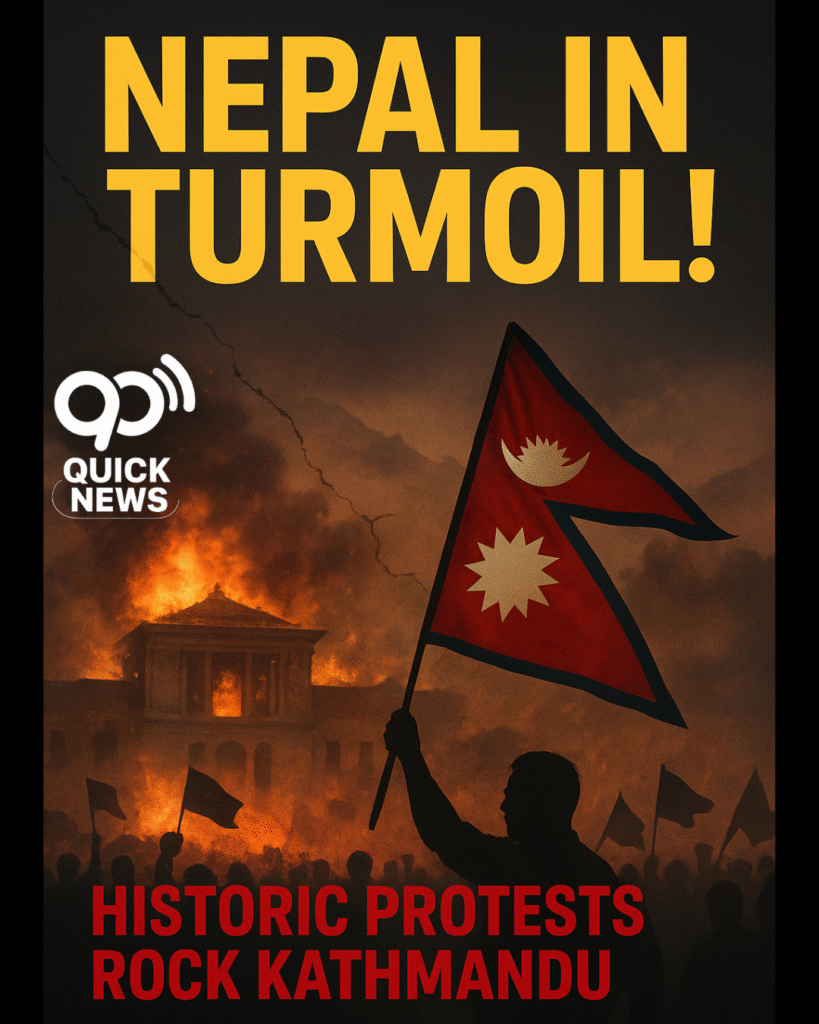Nepal is facing its worst political and social unrest in decades, as widespread protests over corruption and nepotism spiraled into violence and chaos this week. According to Al Jazeera and BBC News, at least 20 people have been killed since Monday after fierce demonstrations erupted across Kathmandu and other major cities.
The protests, largely driven by Generation Z activists, initially began as peaceful demonstrations demanding reforms and transparency. However, the situation turned violent on Tuesday when arson attacks broke out, government buildings were torched, and parliament was set ablaze. Homes of several politicians were also vandalized, prompting the Prime Minister to resign amid mounting pressure and public outrage.
On Wednesday, the streets of Kathmandu saw a heavy army patrol presence as the government enforced strict curfews to maintain order. Nepal’s main airport reopened, and the capital remained tense but relatively calm. Protest leaders condemned the violence, stating that the peaceful movement had been “hijacked by opportunists” who exploited the unrest for personal gain.
The current situation has sparked concerns among regional analysts about political instability in South Asia and its impact on Nepal’s fragile economy. International observers are closely monitoring developments as Nepal struggles to recover from this unprecedented crisis.



